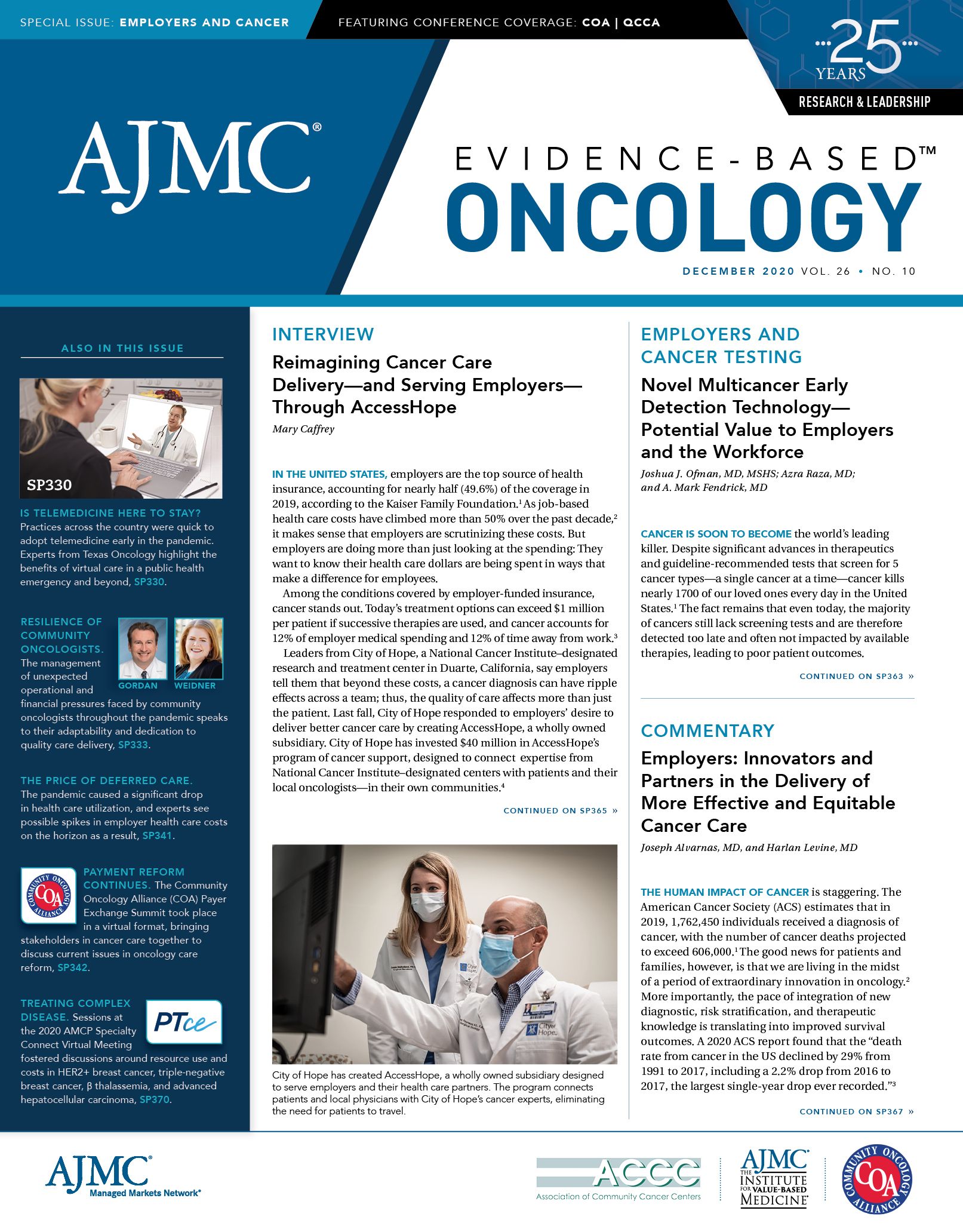- Center on Health Equity & Access
- Clinical
- Health Care Cost
- Health Care Delivery
- Insurance
- Policy
- Technology
- Value-Based Care
Pembrolizumab Expanded to Treat Relapsed, Refractory cHL in Adults, Children
It is the first PD-1 inhibitor to be approved to be used as a monotherapy for the treatment of adult and pediatric patients with relapsed or refractory (R/R) classical Hodgkin lymphoma (cHL).
Merck’s pembrolizumab (Keytruda) received an expanded list of indications to include relapsed or refractory classical Hodgkin lymphoma (cHL) in adults, making it the first anti-PD-1 therapy to be approved for this indication.
Additionally, the FDA granted an undated pediatric indication for pembrolizumab to include refractory cHL and cHL that has relapsed after 2 or more lines of therapy.
“An estimated 8500 patients in the US, many of them 40 years of age or younger, will be diagnosed with cHL this year. Now, patients with cHL who progress after frontline therapy have a new option in Keytruda,” Vicki Goodman, MD, vice president of Clinical Research at Merch Research Laboratories, said in a statement.
Previously, pembrolizumab was approved as a 100 mg injection for the treatment of adult and pediatric patients with refractory cHL, or who have relapsed after 3 or more prior lines of therapy as well as several other types of cancer, including gastric, esophageal, cervical, melanoma, lung, and renal cancers.
In June, the FDA approved pembrolizumab for patients with recurrent or metastatic cutaneous squamous cell carcinoma that is not curable by surgery or radiation.
Pembrolizumab's original approval was part of the FDA’s Project Orbis, which is conducted by the FDA Oncology Center of Excellence allowed for the submission and review of oncology drugs among the agency’s international partners. The FDA is working alongside the Australian Therapeutic Good Administration and Health Canada on the ongoing review.
“The patients with cHL who do not achieve remission following initial treatment or who relapse after transplantation face a poor prognosis, reflecting the unmet need for improved therapies in the relapsed/refractory setting….With this approval, Keytruda has the potential to change the current standard of care and help these patients achieve better outcomes,” said John Kuruvilla, MD, hematologist and associate professor of medicine at Princess Margaret Cancer Centre and University of Toronto, in a statement.
The approval for the expanded indication is based on positive results from a randomized, open-label, active-controlled trial conducted in 304 patients with relapsed or refractory cHL phase 3 trial. The KEYNOTE-204 trial, comparing pembrolizumab with brentuximab vendotin (BV), reduced the disease progression or death risks by 35% (HR = 0.65; 95% CI, 0.48-0.88; P<.0027).
The trial also revealed that median progression-free survival (PFS) was 13.2 months (95% CI, 10.9-19.4) for patients treated with pembrolizumab compared with BV, which had a PFS of 8.3 months (95% CI, 5.7-8.8).
Serious adverse reactions were reported in 30% of patients who took pembrolizumab. The most commonly reported serious adverse reactions included pneumonitis, pneumonia, pyrexia, myocarditis, acute kidney injury, febrile neutropenia, and sepsis.
Adverse reactions were the cause of discontinuation for 14% of patients; 30% of patients had dosage interruptions due to AEs.
The most frequently reported adverse reactions, affecting greater than or equal to 20% of patients, were upper respiratory tract infection (41%), musculoskeletal pain (32%), diarrhea (22%), pyrexia (20%), fatigue (20%), rash (20%), and cough (20%). The most commonly reported adverse reactions that resulted in dosage interruptions were upper respiratory tract infection, pneumonitis, transaminase increase, and pneumonia.

Quality of Life: The Pending Outcome in Idiopathic Pulmonary Fibrosis
February 6th 2026Because evidence gaps in idiopathic pulmonary fibrosis research hinder demonstration of antifibrotic therapies’ impact on patient quality of life (QOL), integrating validated health-related QOL measures into trials is urgently needed.
Read More
